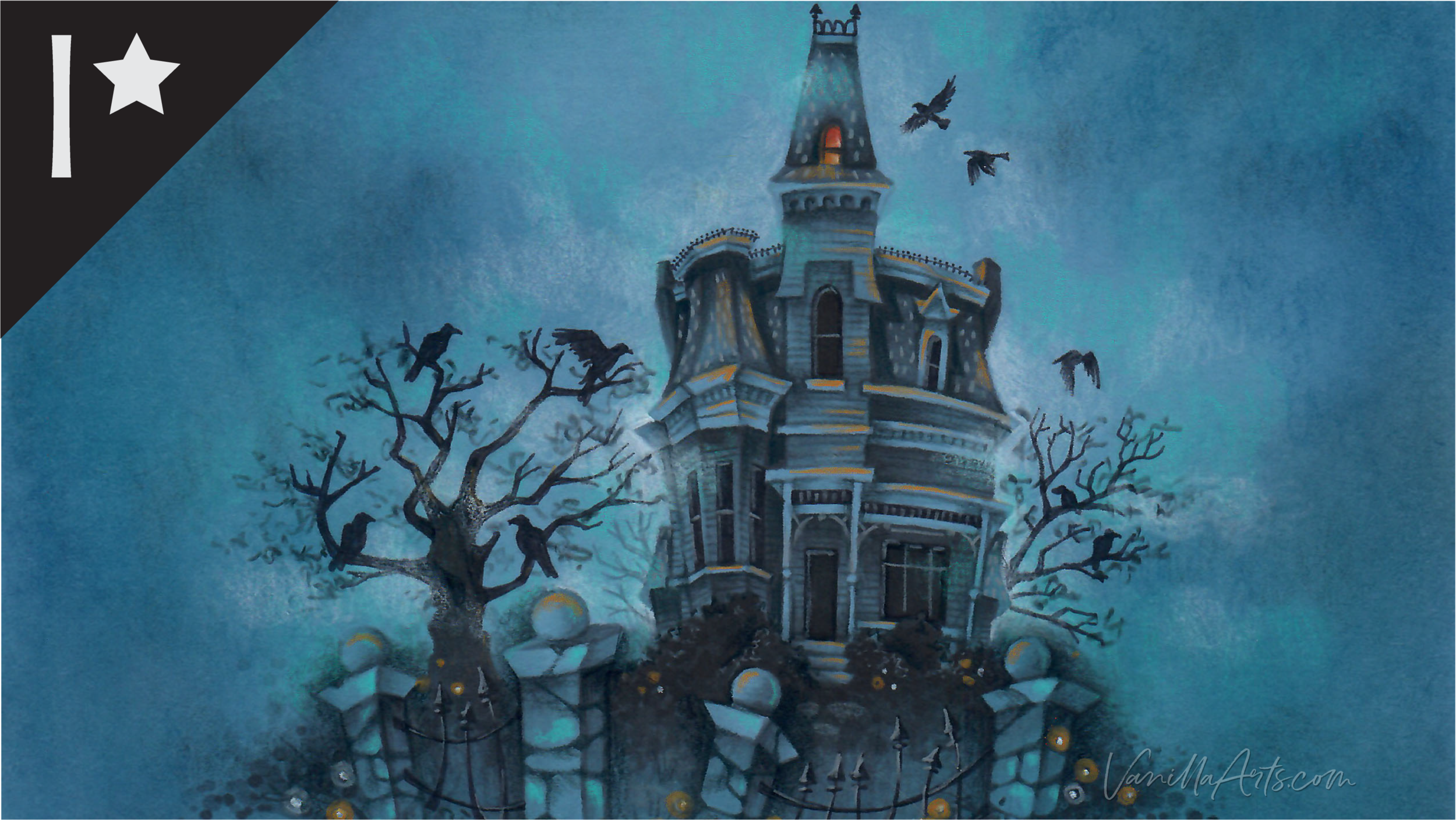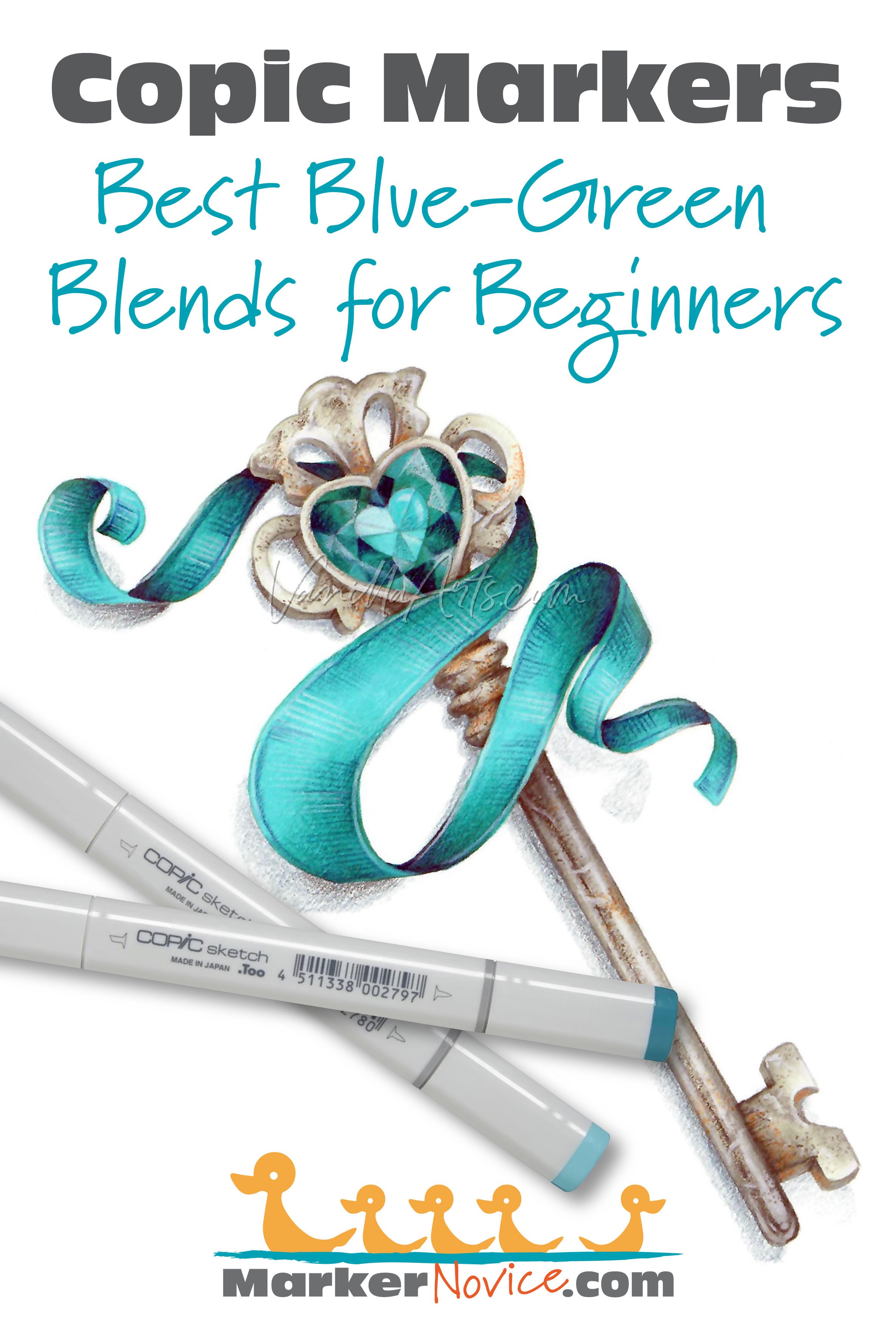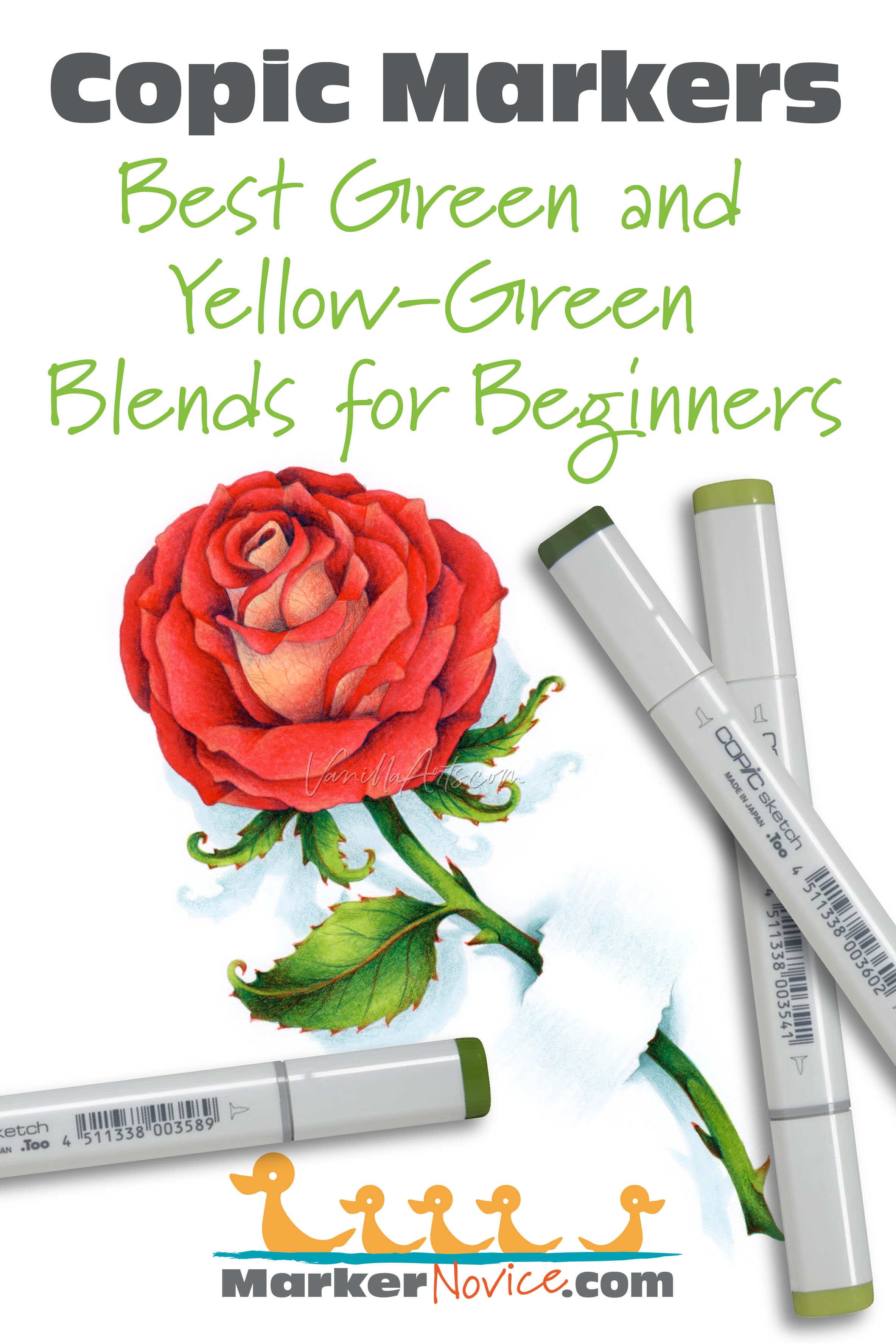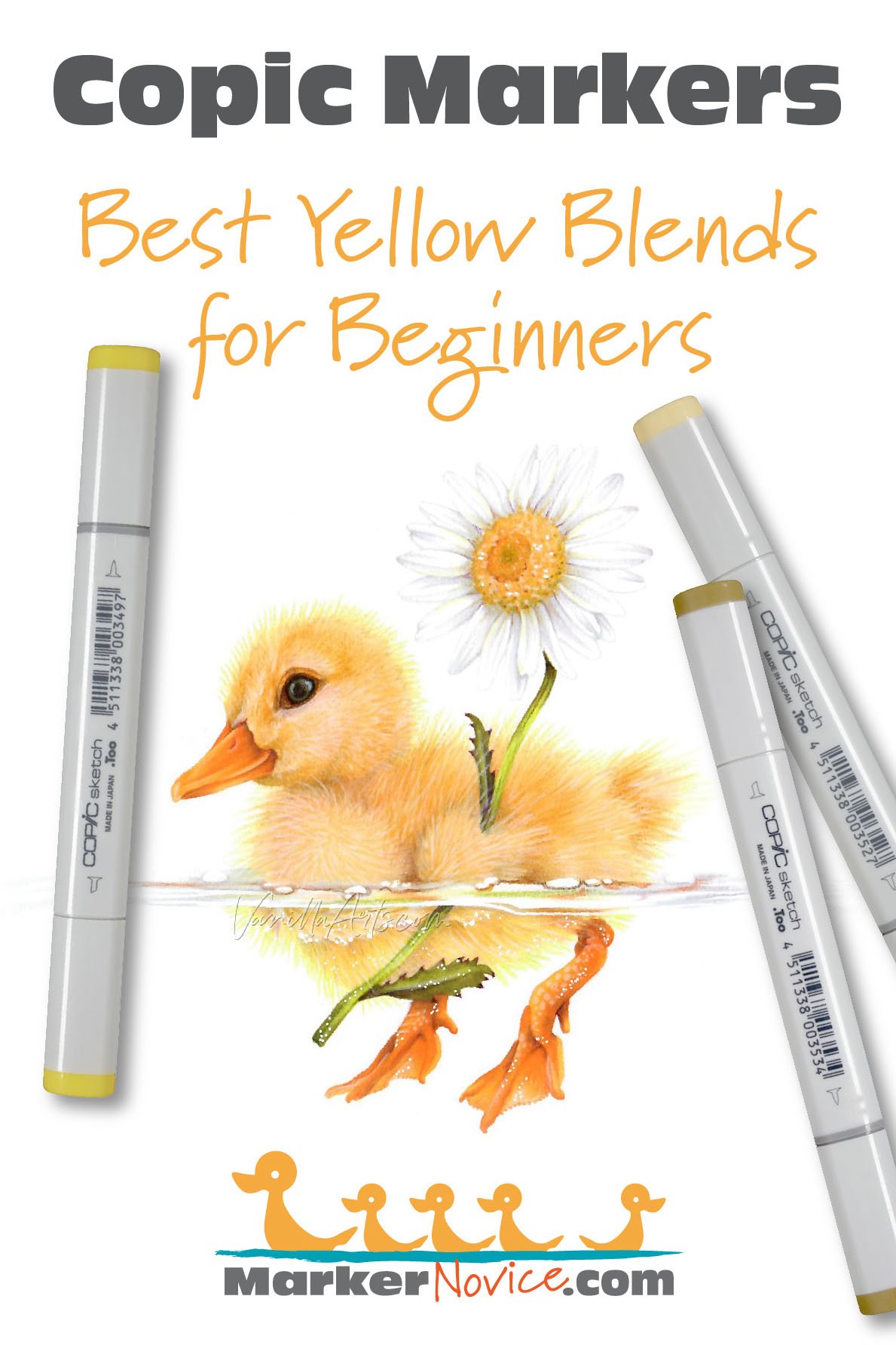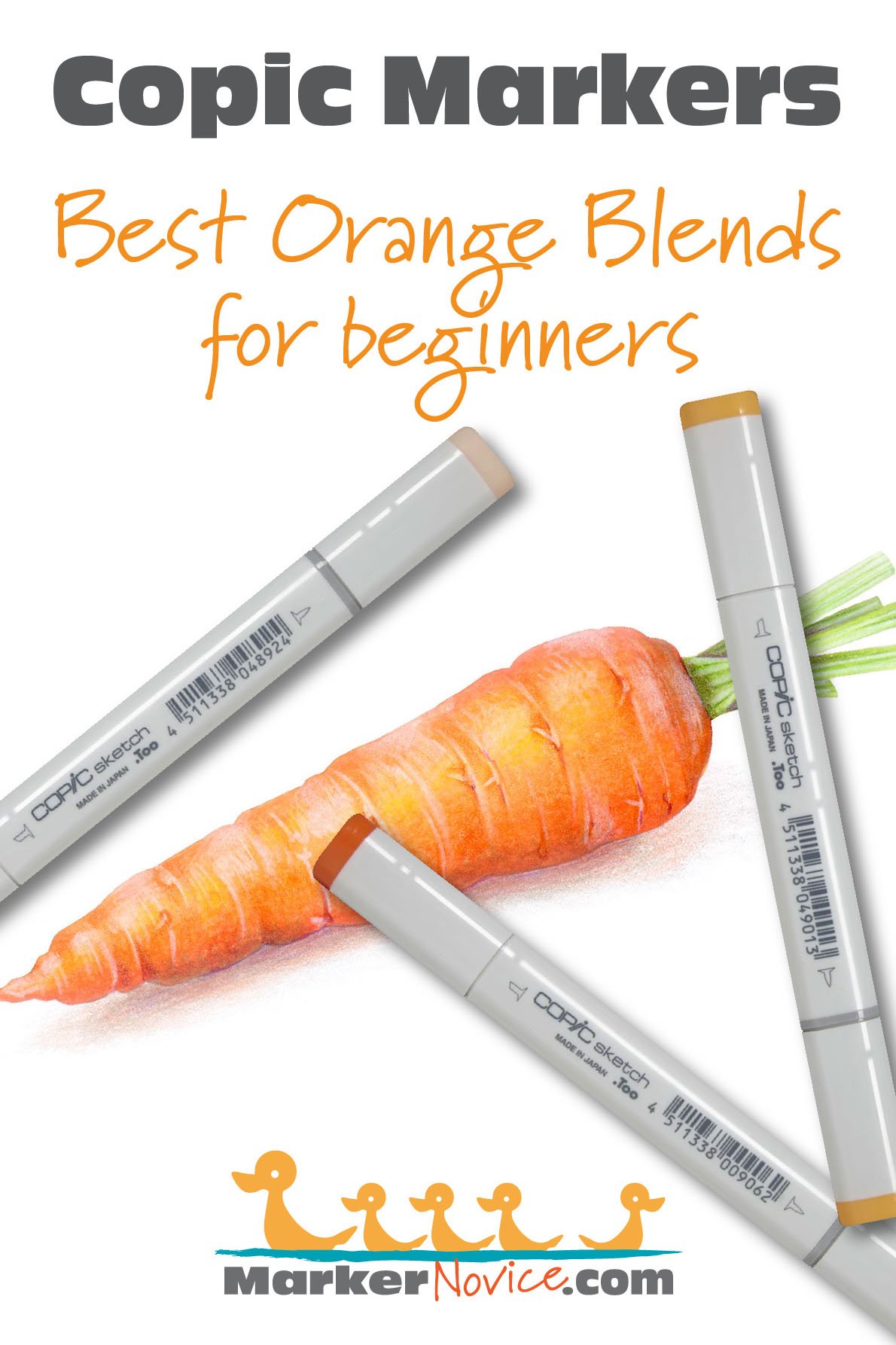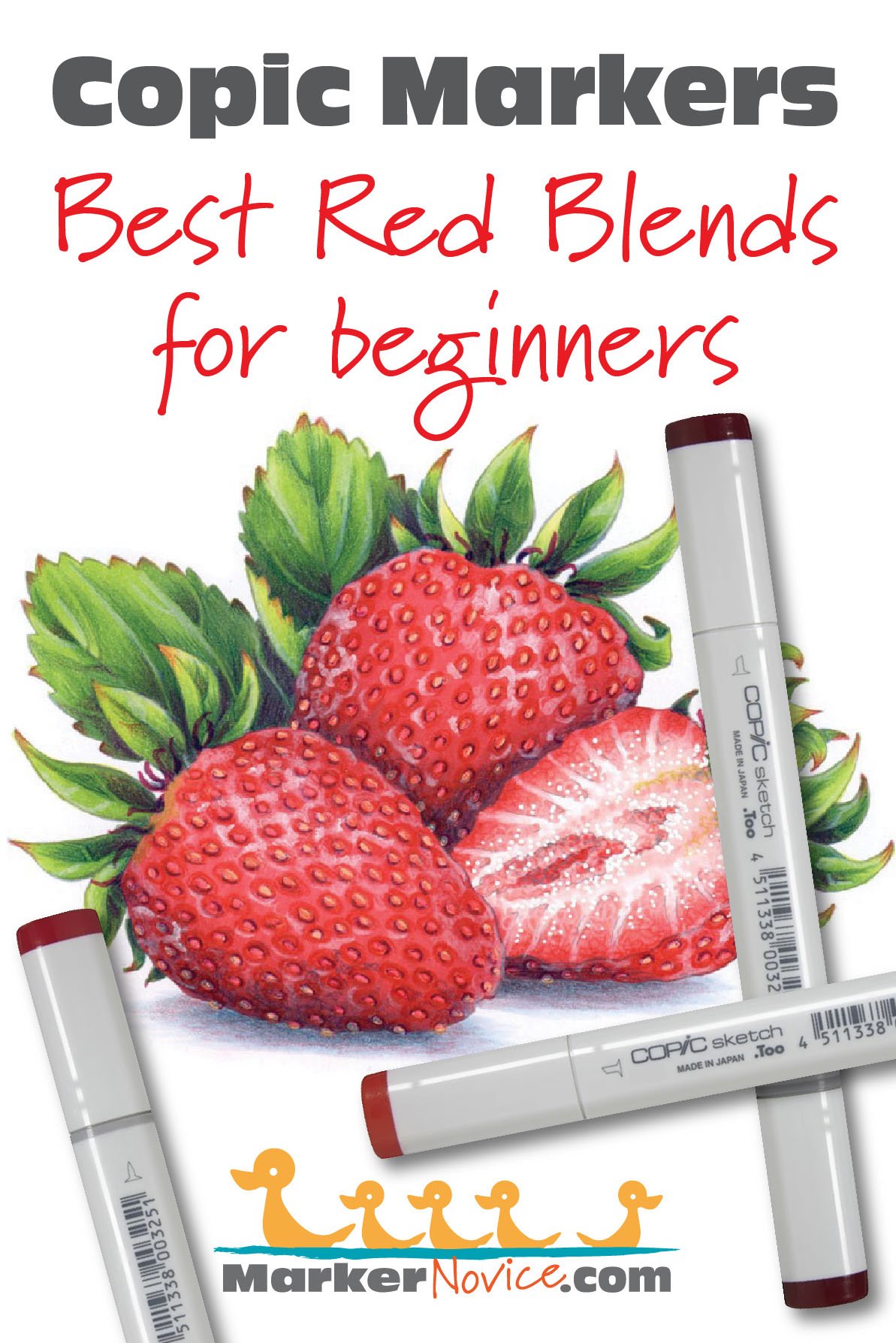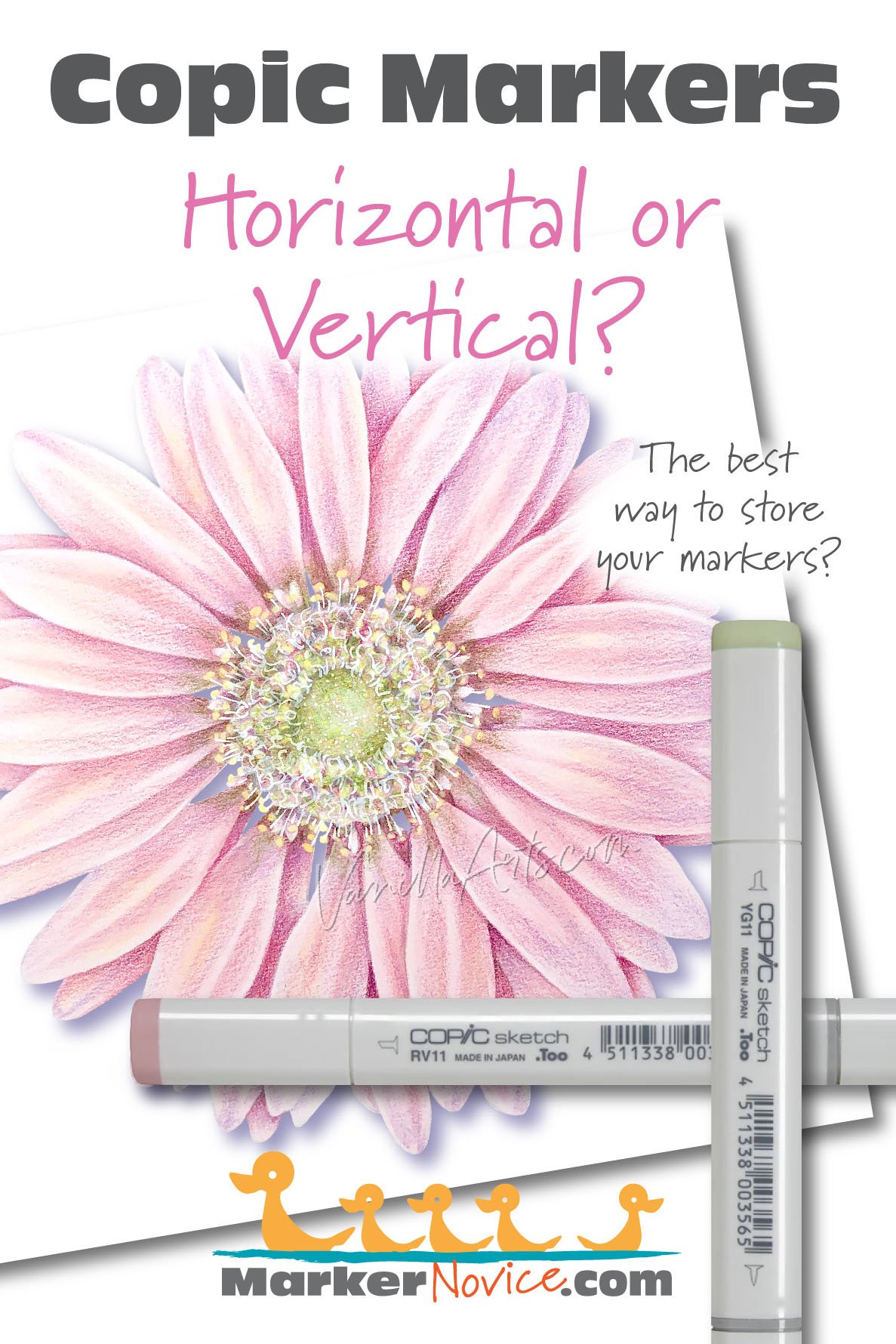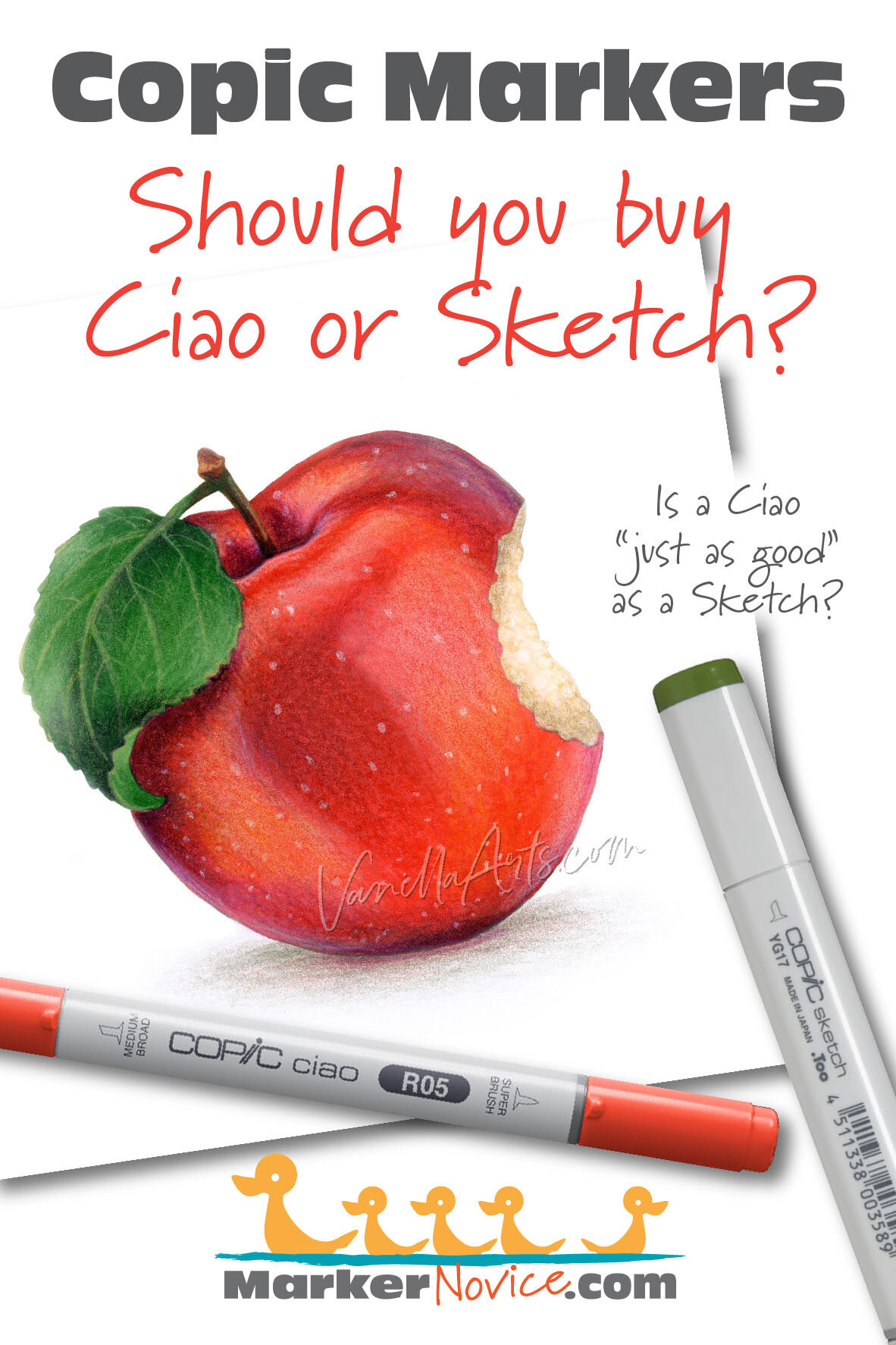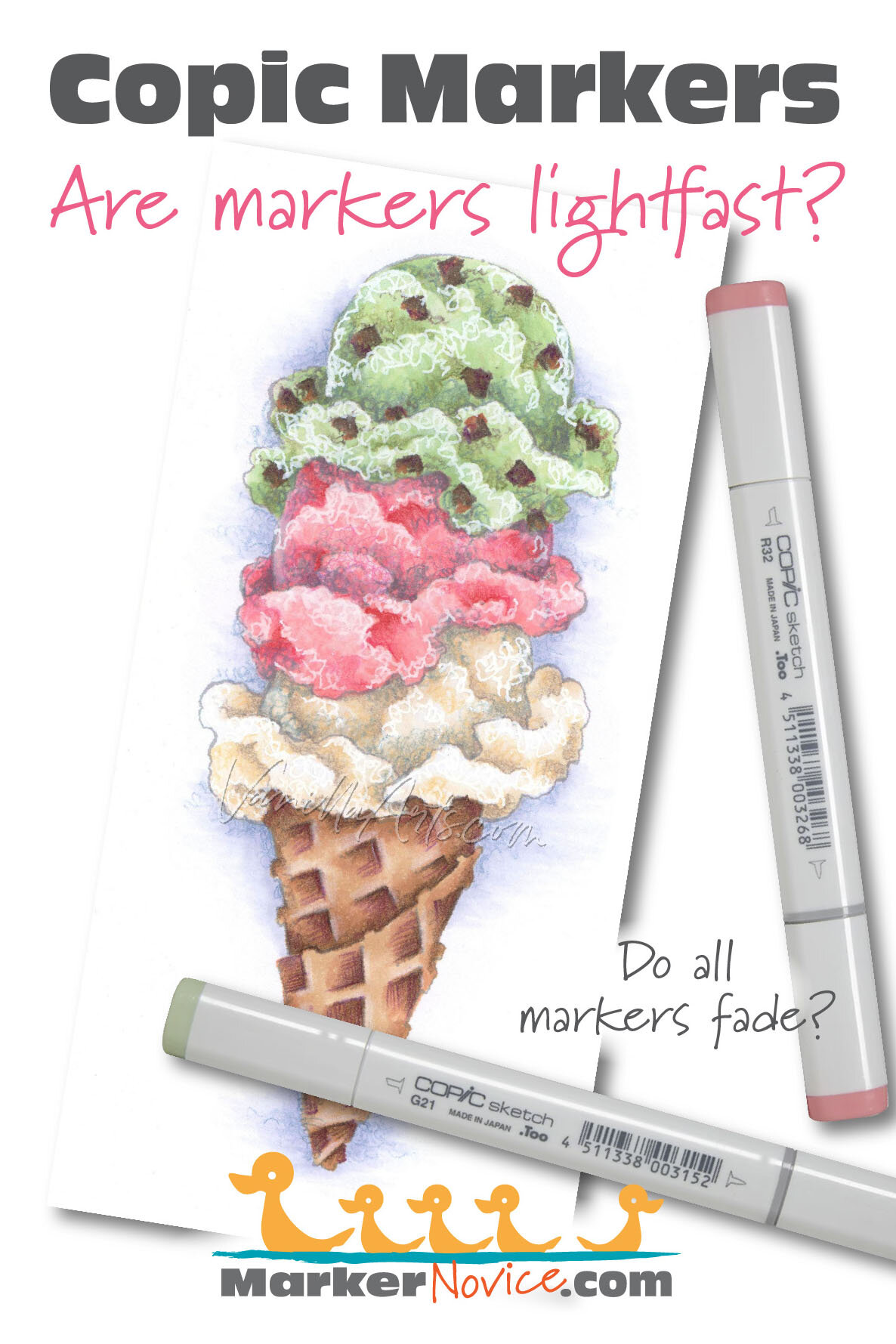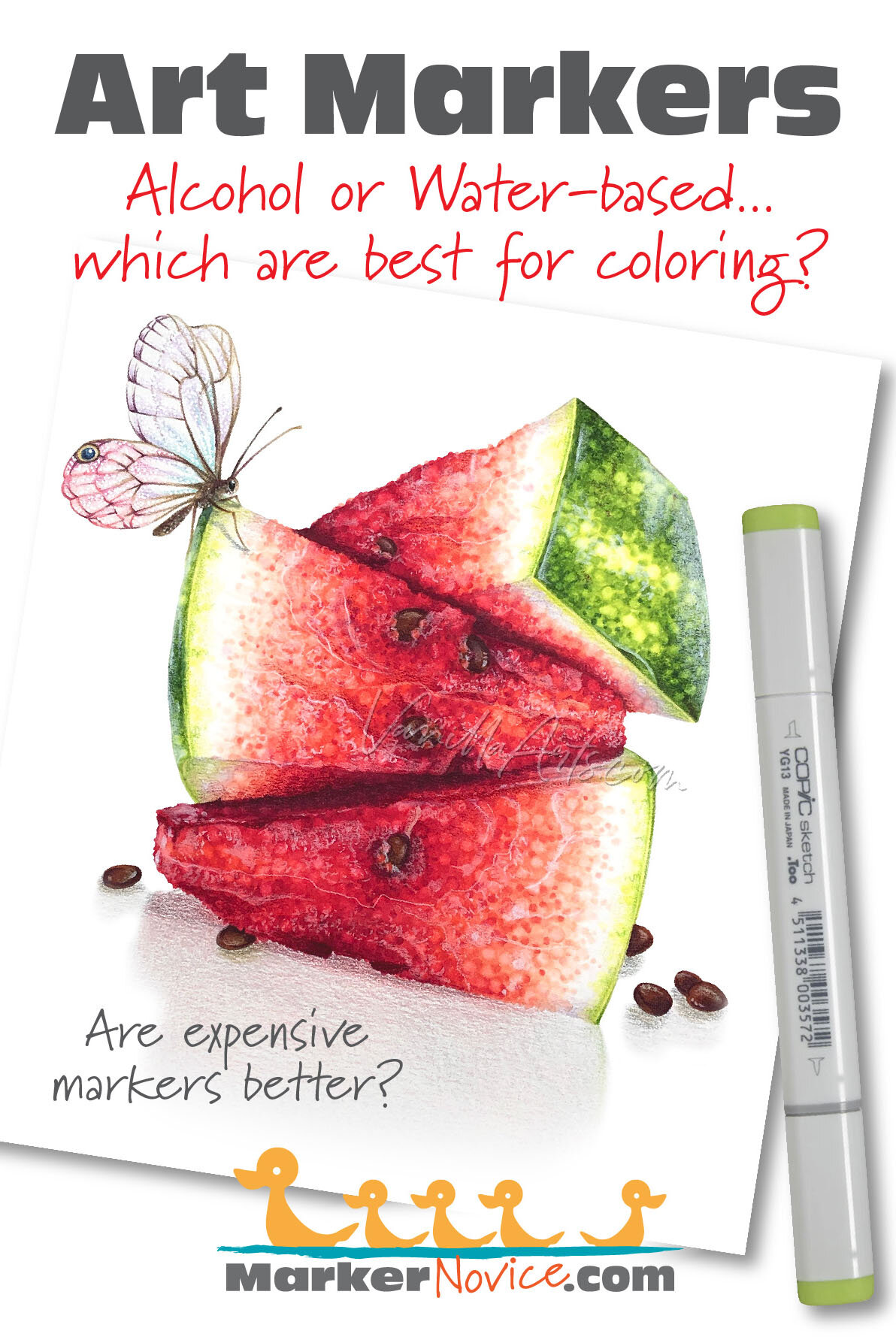100 Black is a cool black Copic Marker with a subtle blue undertone. This marker reaches maximum darkness at 4 layers and can be used as a C11 or N11. 100 is available in Copic Sketch, Ciao, and Classic marker styles.
Every Copic Marker has unique characteristics based on its unique ink formula.
Knowing how a color behaves will help you blend effectively and make art with confidence.
100 Black
Let’s take a closer look at this Copic Marker and its ink characteristics.
Temperature: A cool black.
Actual Value: Near to full black at 4 coats.
All Copics are measured on a Neutral Gray value scale. The last number on the cap is supposed to indicate value but we’ve found discrepancies where the actual ink value is different than cap designation.
Cap Accuracy: Yes.
Buildup: 100 looks great at 4 coats with no oily tones. We did not test further since it would be unusual to layer more.
Shattering: Extreme shattering into a dark gray with blue leakage and hints of red and gold. Use caution when using any high solvent marker near 100 Black because it doesn’t take much to damage this color.
Chromatography testing shows this ink’s behavior when it comes in contact with #0 Colorless Blender (solvent). High shattering colors may leak unexpected color when you make corrections or attempt to blend with any color that has a high solvent to colorant ratio. Shattering is not bad, it’s just something to be aware of.
Staining: Extremely staining.
Lift: It lifts a bit but it’s very obvious that this color will never move much.
See staining swatch. Sample was given 6 stripes of #0 Colorless Blender, drying between each stripe. Results indicate how much lifting you can expect.
Lightfast: Minimal fading was detected, perhaps about 5% but we would expect to see a lot more fade with extrended testing time.
Samples were swatched on X-Press It Blending Card. 1 layer of ink was exposed to windowsill sunlight for 21 days. Approximately 10 hours of sun per day based on weather conditions. Note: we do not recommend displaying original Copic art under these conditions.
Natural Ink Family: 100 seems like an ink in its own family but could be used as a C11 or N11.
Family Members: 100
We include this information because many Copic users never think deeper than the letter groupings (R, BV, G, etc.). Every ink has its own temperature variations and underlying flavors. Understanding what an ink looks like in its different dilutions helps when creating your own blending combinations.
Complement: N/A
Underpaint: N/A
Pushing Pencil: N/A
VanillaArts.com (our sister site) teaches a Push & Pull technique for dimensional coloring. This is simply one suggestion. Many possible colors exist. Test to find a color that pleases you.
Vanilla Arts Classes using 100:
Vanilla Arts Digi Stamps using 100:
We continue to create new content and stamps and we will update here as more become available.
Visit the Vanilla Stamp Shop our sister site VanillaArts.com for a wide variety of Copic classes.
Color palettes and swatches using 100:
We are building our palette and swatch collection a little more each week and will update here as more become available.
Visit the color resource page at our sister site VanillaArts.com for a wide variety of Copic palettes and swatches.
Looking for beautiful color palettes?
We absolutely love The Color Catalog 1 & 2 from Sarah Renae Clark. It puts hundreds of Copic friendly color palettes at your fingertips.
(note: affiliate link)



